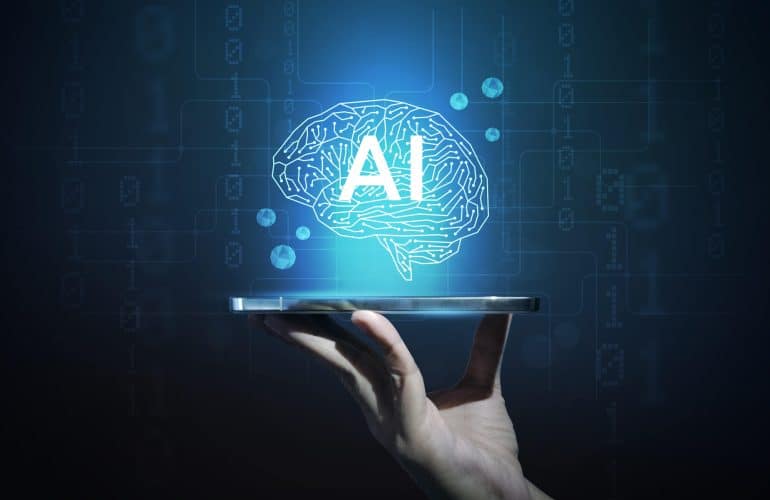Key Takeaways
- AI is transforming HR by improving efficiency and providing data-driven insights, but it also presents ethical challenges like bias and discrimination.
- A significant majority of CEOs anticipate that AI will greatly impact HR functions, streamlining tasks from application screening to performance monitoring.
- Algorithmic bias is a major concern, with AI systems potentially replicating human prejudices, as seen in lawsuits and biased candidate evaluations based on speech patterns.
- Legislative actions, such as New York City’s audit mandate and employer disclosures in Illinois, aim to regulate AI in HR, but critics point out gaps like enforcement weaknesses.
- Proactive company measures include educating HR teams, regularly auditing AI tools, and allowing candidates to opt out of AI assessments to manage bias effectively.
- Collaboration between business leaders and lawmakers is critical in establishing clear guidelines to ensure the responsible and ethical use of AI in HR.
Artificial Intelligence (AI) is revolutionizing how businesses manage human resources, streamlining everything from hiring to employee evaluations. However, as AI tools proliferate in HR settings, they introduce potential ethical challenges, including bias and discrimination. This blog examines the growing reliance on AI in HR, its benefits, risks, and the steps companies and lawmakers should take to ensure these tools are used responsibly.
The Rise of AI in HR
Today’s competitive business environment pressures companies to optimize their HR functions. According to a report by Korn Ferry, 82% of CEOs and senior leaders anticipate that AI will significantly impact their businesses, with applications ranging from screening job applications to monitoring employee performance.
Benefits of AI in HR:
- Efficiency: AI can process applications and manage HR tasks faster and more cost-effectively than traditional methods.
- Data-Driven Decisions: AI tools provide data-driven insights, allowing HR teams to make informed decisions about hiring and promotions.
- Scalability: As companies grow, AI systems can scale HR processes without significantly increasing costs.
The Dark Side: AI Bias in Hiring
Despite its advantages, AI in HR isn’t without its pitfalls. One major concern is algorithmic bias, where AI systems replicate human prejudices, potentially leading to discrimination in the workplace. For instance:
- Case Study: A report highlights a lawsuit against HR technology company Workday, where an applicant alleged discrimination after applying to over 100 jobs with no success. The court allowed this novel AI bias case to proceed, showcasing the legal vulnerabilities companies face.
- Speech Pattern Analysis: Video interviewing software that evaluates candidates based on speech patterns might unfairly score individuals with accents or speech impediments lower, perpetuating discrimination.
Legislative and Corporate Responsibility
New York City and AI Regulations: In 2023, New York mandated that employers audit AI hiring tools and publish the results. However, critics argue the law lacks enforcement mechanisms, letting employers sidestep compliance easily.
Other States Take Action: States like Illinois now require employer disclosure when AI tools are used in recruitment. Meanwhile, states like New Jersey, California, and Texas are exploring similar legislation.
Federal Landscape: The Trump administration has pledged to repeal President Biden’s comprehensive AI executive order, leaving a regulatory vacuum at the national level—prompting states and municipalities to fill the gap via localized legislation.
Employers’ Proactive Measures
Despite legislative efforts, companies can take several internal actions to manage AI bias:
- Educate HR Teams: Ensure HR staff are proficient in AI tool functionalities and vigilant in monitoring biases.
- Frequent Audits: Regularly audit AI tools to understand their impact and rectify any identified biases.
- Transparent Notification: Inform applicants if their data will be processed by AI, including what metrics will be evaluated, the data sources, and retention policies.
- Opt-Out Options: Allow candidates to opt out of AI assessments without facing discrimination.
The Path Forward
As AI’s presence in HR grows, balancing technological efficacy with ethical responsibility becomes crucial. Business leaders and legislators must collaborate to establish clear guidelines and preventative measures. Through collective efforts, AI can be leveraged to fulfill its promise of improving HR functions while safeguarding against discrimination.
Ultimately, responsible AI deployment can lead to fairer and more inclusive workplaces, benefiting employees, employers, and society.




